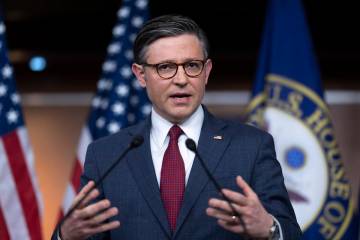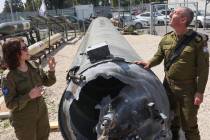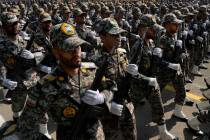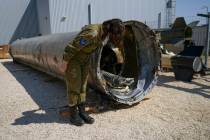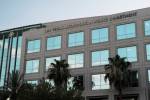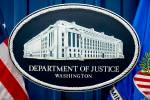AP sources: Obama preparing to name Comey to FBI
WASHINGTON — President Barack Obama is preparing to nominate former Bush administration official James Comey to head the FBI, people familiar with the decision said Wednesday.
Three people with knowledge of the selection said Obama planned to nominate Comey, who was the No. 2 in President George W. Bush’s Justice Department. The three people spoke on condition of anonymity because they were not authorized to discuss the selection ahead of Obama’s announcement, which was not expected immediately.
Comey became a hero to Democratic opponents of Bush’s warrantless wiretapping program when Comey refused for a time to reauthorize it. Bush revised the surveillance program when confronted with the threat of resignation by Comey and current FBI Director Robert Mueller, who is stepping down in September.
Comey’s selection was first reported by NPR and was not expected to be announced for several days at least.
Comey was deputy attorney general in 2005 when he unsuccessfully tried to limit tough interrogation tactics against suspected terrorists. He told then-Attorney General Alberto Gonzales that some of the practices were wrong and would damage the department’s reputation.
Some Democrats denounced those methods as torture, particularly the use of waterboarding, which produces the same sensation as drowning.
Earlier in his career, Comey served as U.S. attorney for the Southern District of New York, one of the nation’s most prominent prosecutorial offices and one at the front lines of terrorism, corporate malfeasance, organized crime and the war on drugs.
As an assistant U.S. attorney in Virginia, Comey handled the investigation of the 1996 bombing of the Khobar Towers housing complex near Dhahran, Saudi Arabia, that killed 19 U.S. military personnel.
Comey led the Justice Department’s corporate fraud task force and spurred the creation of violent crime impact teams in 20 cities, focusing on crimes committed with guns.
Comey was at the center of one of the Bush administration’s great controversies — an episode that focused attention on the administration’s controversial tactics in the war on terror.
In stunning testimony to the Senate Judiciary Committee in 2007, Comey said he thought Bush’s no-warrant wiretapping program was so questionable that Comey refused for a time to reauthorize it, leading to a standoff with White House officials at the bedside of ailing Attorney General John Ashcroft.
Comey said he refused to recertify the program because Ashcroft had reservations about its legality.
Senior government officials had expressed concerns about whether the National Security Agency, which administered the warrantless eavesdropping program, had the proper oversight in place. Other concerns included whether any president possessed the legal and constitutional authority to authorize the program as it was carried out at the time.
The White House, Comey said, recertified the program without the Justice Department’s signoff, allowing it to operate for about three weeks without concurrence on whether it was legal. Comey, Ashcroft, Mueller and other Justice Department officials at one point considered resigning, Comey said.
“I couldn’t stay if the administration was going to engage in conduct that the Department of Justice had said had no legal basis,” Comey told the Senate panel.
A day after the March 10, 2004, incident at Ashcroft’s hospital bedside, Bush ordered changes to the program to accommodate the department’s concerns. Ashcroft signed the presidential order to recertify the program about three weeks later.
The dramatic hospital confrontation involved Comey, who was the acting attorney general during Ashcroft’s absence, and a White House team that included Bush’s then-counsel, Alberto Gonzales, and White House chief of staff Andy Card, Comey said. Gonzales later succeeded Ashcroft as attorney general.
Comey testified that when he refused to certify the program, Gonzales and Card headed to Ashcroft’s sick bed in the intensive care unit at George Washington University Hospital.
When Gonzales appealed to Ashcroft, the ailing attorney general lifted his head off the pillow and in straightforward terms described his views of the program, Comey said. Then he pointed out that Comey, not Ashcroft, held the powers of the attorney general at that moment.
Gonzales and Card then left the hospital room, Comey said.
“I was angry,” Comey told the panel. “I thought I had just witnessed an effort to take advantage of a very sick man who did not have the powers of the attorney general.”
———
THE ASSOCIATED PRESS Pete Yost contributed to this report.
———
Follow Nedra Pickler on Twitter at https://twitter.com/nedrapickler




